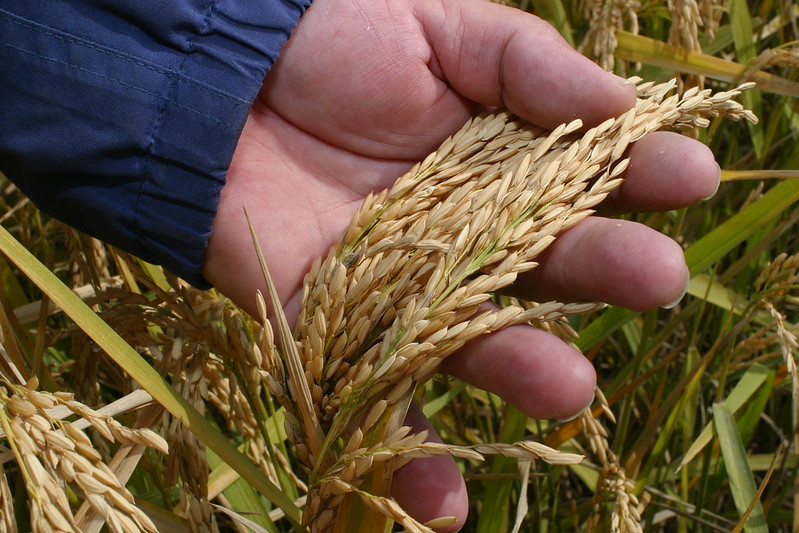Fact sheet provides answers about ad hoc payments to rice farmers
Jan. 13, 2023
By Mary Hightower
U of A System Division of Agriculture
Fast facts:
- Fact sheet about ad hoc payments available
- FSA68 designed to help 2023 growing season decisions
(305 words)
(Newsrooms: Fact sheet available at https://www.uaex.uada.edu/publications/pdf/FSA68.pdf)
LITTLE ROCK — Rice farmers with questions about funding contained in the omnibus bill signed last month by President Biden can find answers in a fact sheet released Friday by the University of Arkansas System Division of Agriculture.
The Fiscal Year Omnibus Appropriations Bill includes $250 million in funding for a one-time payment to rice producers to help them offset high costs faced by the industry. Drivers of those costs include weather, war and other factors, said Hunter Biram, extension economist for the Division of Agriculture.
“We knew there would be a lot of questions and we wanted to have ready information for Arkansas rice farmers to make sound decisions for the 2023 growing season,” Biram said.
The fact sheet is available for download at https://www.uaex.uada.edu/publications/pdf/FSA68.pdf.
Biram authored FSA68 along with Jarrod Hardke, extension rice agronomist for the Division of Agriculture and Harrison Pittman, director of the National Agricultural Law Center.
“Rice producers in particular were impacted heavily by major increases in production costs in 2022, more so than other crops,” Hardke said. “Hopefully these payments ensure that rice farms are able to stay in operation moving forward and the economic outlook improves.”
Harrison Pittman, director of the National Agricultural Law Center said the ad hoc funding “was a huge legislative lift and a significant help to rice producers in Arkansas and beyond.”
Both Biram and Hardke urged rice growers to exercise caution where the payments are concerned.
“While this assistance will be key to growers remaining profitable, caution should also be exercised regarding expectations about how much each grower will receive and how that impacts their planning and operation for the 2023 season,” Hardke said.
Farmers should be sure to read the FAQs in the fact sheet and urged them to “not make any decisions until you get a check in the mail,” Biram said.
To learn about extension programs in Arkansas, contact your local Cooperative Extension Service agent or visit www.uaex.uada.edu. Follow us on Twitter and Instagram at @AR_Extension. To learn more about Division of Agriculture research, visit the Arkansas Agricultural Experiment Station website: https://aaes.uada.edu. Follow on Twitter at @ArkAgResearch. To learn more about the Division of Agriculture, visit https://uada.edu/. Follow us on Twitter at @AgInArk.
About the Division of Agriculture
The University of Arkansas System Division of Agriculture’s mission is to strengthen agriculture, communities, and families by connecting trusted research to the adoption of best practices. Through the Agricultural Experiment Station and the Cooperative Extension Service, the Division of Agriculture conducts research and extension work within the nation’s historic land grant education system.
The Division of Agriculture is one of 20 entities within the University of Arkansas System. It has offices in all 75 counties in Arkansas and faculty on five system campuses.
Pursuant to 7 CFR § 15.3, the University of Arkansas System Division of Agriculture offers all its Extension and Research programs and services (including employment) without regard to race, color, sex, national origin, religion, age, disability, marital or veteran status, genetic information, sexual preference, pregnancy or any other legally protected status, and is an equal opportunity institution.
# # #
Media contact:
Mary Hightower
mhightower@uada.edu
501-671-2006
